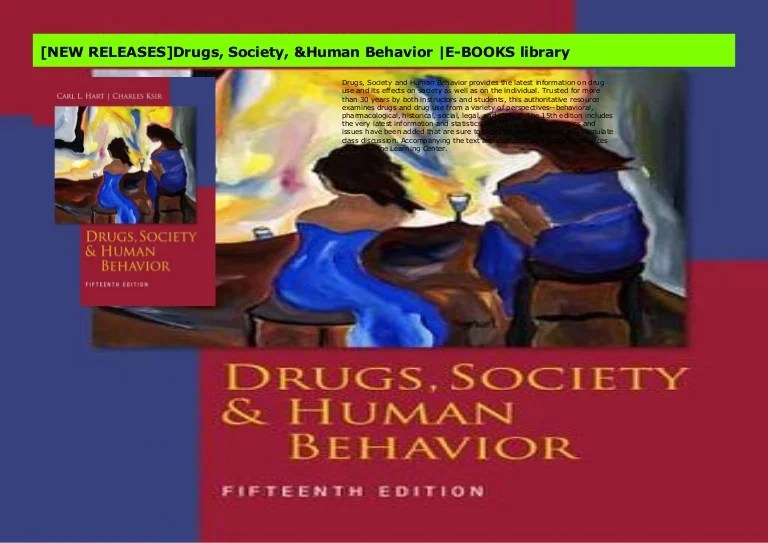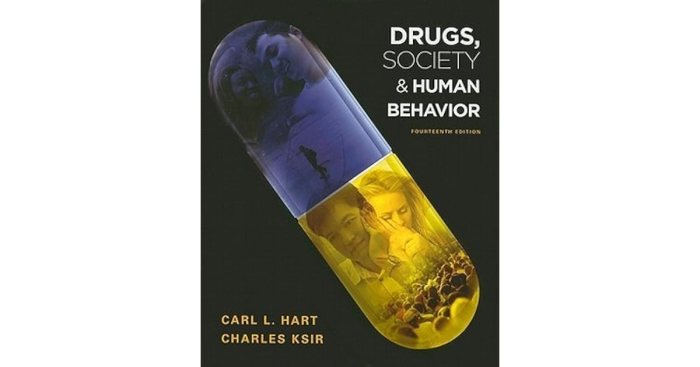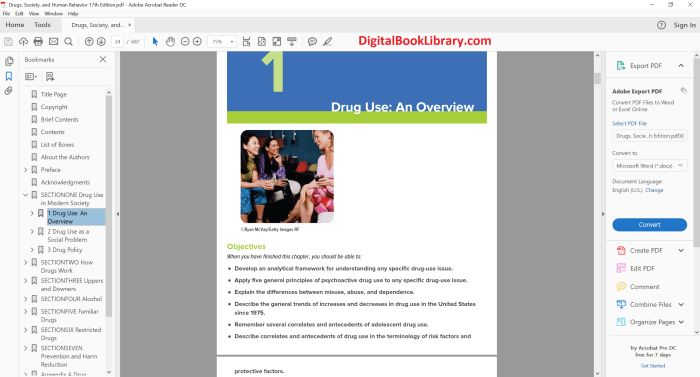Drugs society and human behavior 18th edition pdf free – Embark on an insightful journey into the intricate tapestry of drugs, society, and human behavior with the 18th edition of this comprehensive text. This authoritative guide delves into the historical, cultural, and scientific aspects of drug use, providing a nuanced understanding of its profound impact on individuals and communities.
Through a rigorous examination of drug classification, effects, addiction, policy, treatment, and ethical considerations, this book empowers readers with the knowledge and critical thinking skills necessary to navigate the complex landscape of drug use in the 21st century.
Drugs in Society: Historical and Cultural Perspectives

Drug use has a long and complex history, with evidence of its use in various cultures dating back thousands of years. The reasons for drug use vary widely, from medicinal and religious purposes to recreational and social uses. Cultural factors, such as religious beliefs, social norms, and economic conditions, play a significant role in shaping patterns of drug use and abuse.
Societal Factors Influencing Drug Use
Societal factors that influence drug use include:
- Poverty and economic inequality
- Lack of education and opportunity
- Social stigma and discrimination
- Cultural norms and values
- Media portrayal of drug use
Classification and Effects of Drugs, Drugs society and human behavior 18th edition pdf free
Drugs can be classified into different categories based on their chemical structure, pharmacological effects, and potential for abuse. The following table provides an overview of common drug classifications:
| Drug Classification | Examples | Effects |
|---|---|---|
| Stimulants | Cocaine, amphetamines | Increased alertness, energy, and focus |
| Depressants | Alcohol, benzodiazepines | Relaxation, reduced anxiety, impaired judgment |
| Opioids | Heroin, morphine | Pain relief, euphoria, sedation |
| Hallucinogens | LSD, psilocybin | Altered perception, hallucinations, spiritual experiences |
| Cannabis | Marijuana, hashish | Relaxation, euphoria, altered perception |
Drug use can have a wide range of physiological and psychological effects, including:
- Changes in mood and behavior
- Altered perception and cognition
- Increased or decreased heart rate and blood pressure
- Respiratory depression or stimulation
- Physical dependence and withdrawal symptoms
Drug Addiction and Dependence
Drug addiction, also known as substance use disorder, is a chronic relapsing brain disease characterized by compulsive drug use, despite negative consequences. Factors contributing to addiction include:
- Genetic predisposition
- Environmental factors (e.g., stress, trauma)
- Drug-related factors (e.g., potency, route of administration)
Addiction can have devastating physical, psychological, and social consequences, including:
- Health problems (e.g., liver damage, heart disease)
- Mental health issues (e.g., depression, anxiety)
- Relationship problems
- Financial difficulties
- Legal problems
Popular Questions: Drugs Society And Human Behavior 18th Edition Pdf Free
What are the key societal factors that influence drug use?
Socioeconomic conditions, cultural norms, and legal frameworks play a significant role in shaping drug use patterns within a society.
How does drug addiction develop?
Addiction arises from a complex interplay of biological, psychological, and environmental factors, including genetic predispositions, exposure to trauma, and social support systems.
What are the ethical dilemmas associated with drug use?
Ethical considerations surrounding drug use include the balance between individual autonomy and public health concerns, the role of criminalization, and the equitable distribution of treatment resources.

